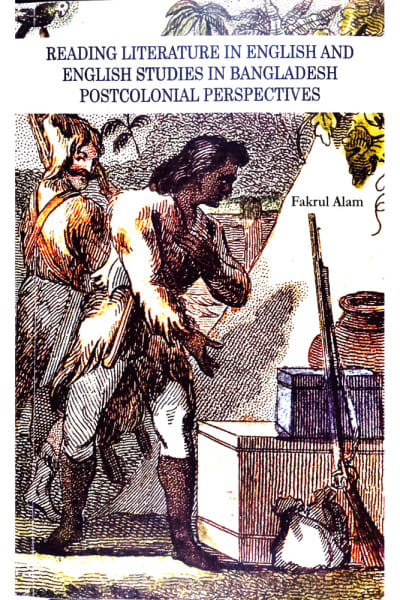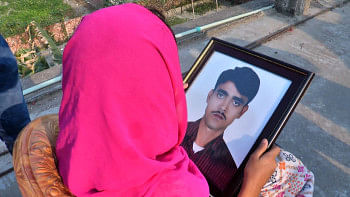A Postcolonial Take on Literature in English and English Studies in Bangladesh

In Metaphor, David Punter reads Chinua Achebe's postcolonial novel, Things Fall Apart (1958) which draws upon Yeats's "The Second Coming" (1921) for its title, arguing that the centre is "responsible for the very social, political and cultural problems now being encountered in Africa, and perhaps globally" (117). While in Yeats the centre is synonymous with "innocence," Achebe's position as the colonised reconceptualises it to be the root of all plights. The shift in perspective caused by colonial experience endows the postcolonial writer with a weapon to rework. It also alters and indeed subverts the ideologically coded colonial network of images and metaphors to write back to the centre. Theorised as "contrapuntal reading" by Edward Said, it is "a form of 'reading back' from the perspective of the colonised to show how submerged but crucial presence of the empire emerges in canonical texts" (Ashcroft and Ahluwalia, Edward Said 8). Martinique- Francophone poet Aimé Césaire's postcolonial take on The Tempest in his play Une Tempête (1969) is a good way of understanding how a creative writer can read back the canonical texts and destabilise canonicity and thus produce powerful narratives. Postcolonial standpoint then enables a writer or a critic to unsettle the "colonial straitjacket" (Dalrymple, 2005) which privileges the imperialist and colonialist gaze to exoticise and orientalise the colony and the colonised.
Reading Literature in English and English Studies in Bangladesh: Postcolonial Perspectives (hereafter RLE) by Fakrul Alam reveals the author's deep-seated interest in themes and issues with postcolonial overtone. Consisting of more than 500 pages, the recently published book includes an illuminating introduction which lays the perspective, as well as 25 essays, papers and reviews the author presented in conferences and wrote for journals or books. It addresses issues such as South Asian Literature, postcoloniality, transnationalism and the state of English language teaching in Bangladesh. The paperback collection dedicated to Professor Emeritus Serajul Islam Choudhury, "a mentor for all seasons," builds on Alam's Imperial Entanglements and Literatures in English published in 2007 which negotiated the creative writing in English in the erstwhile colonies as well as discussed the literary outcome of Britain's colonial ventures and how they impacted the writing in English over the centuries (xv). RLE critiques the state of English language teaching in Bangladesh in the age of neo-globalization and English as the language of "power" in "our apparently decolonized world" which continues to use it as "a valuable commodity" (xv).
The book is divided into four parts, each of them exploring particular postcolonial concerns. Part 1 entitled "Reading Literature Postcolonially" comprises eight essays including articles on Defoe, and his Crusoe, who Alam views as "a protypical colonizer," and A Passage to India. Included in this part is a review "A Primer for Postcolonialism" (126-34) which discusses the significance of Key Concepts in Post-Colonial Studies (1998) by Ashcroft, Griffiths and Tiffin in the study of postcoloniality. Alam finds Key Concepts enormously important because it first traced the origins of some of the key ideas in the works of Fanon and emphasised the seminal role played by Said and later theorists like Bhabha and Spivak in stimulating postcolonial studies (7). In "Imagining South Asian Writing in English from Bangladesh" (135-51), the author negotiates the limitations that labels such as "Commonwealth writing," "Third World Literature," and "New Writings in English" pose. He opts for "South Asian Writing in English" as the umbrella term for creative writing produced in the geo-political region known as South characterised by a "shared history" based on "shared historical location" and "shared traditions and practices that regularly defy the diktat of national boundaries" (Sayantan Dasgupta qtd in Alam, 147). With a view to providing directions for the South Asian Writing in English, Alam refers to the works and scholarship of Bangladesh's foremost poet in the English language, Kaiser Haq, who is rooted in Bangladesh, but simultaneously takes part in trans-Indian subcontinent phenomenon, "a movement vitally involved with world literature for sustenance and growth" (148).
Part 2 entitled "Essays on a Few Major Writers" includes articles on R K Narayan, Achebe, Said, Joseph Conrad, as well as issues such as exile, cosmopolitanism, diasporic intellectual, global intellectual and transnationalism, confronting Empire, and reading South Asian Fiction in English to-day. Alam is deeply indebted to Said and he puts it on record how the Palestinian-American scholar has been an "influence" on him, and how his works such as Beginnings, Orientalism, The World, the Text and the Critic and Culture and Imperialism continue to fascinate and provoke him. He shows how Said's "contrapuntal reading" is a powerful tool to resist the authority of the "Great Tradition" as signposted by F R Leavis (11). Said is important because he implied that students of culture and imperialism must juxtapose the canonical works of the western tradition with the works by writers from the colonies "to make them yield meaning pertinent to their world" (224).
In the chapter entitled "Confronting Empire Now" (297-99) Alam stresses how imperialism in its different manifestations is a living reality for the non-western world. He believes that postcolonial criticism can play a pivotal role in exposing and challenging neo-imperialist projects from the western powers, which are always on the lookout for cementing their strength "and fulfilling their appetites for markets." Alam draws readers' attention to several cases in the recent past to reveal how Bangladesh is vulnerable to imperial projects. He refers to the tactics deployed by the British Council to sell "British educational and linguistic interests" in the country, as well as the Rana Plaza tragedy of 2013 the roots of which were laid "in the insatiable appetite for cheap textiles in the western world." This is where our civil society can draw inspiration from Said and activists like Arundhuti Roy whose "stance exposes graphically the network of interests that sustains empire and propels imperial interests perpetually" (299).
Part 3 "English Studies in Bangladesh in the age of Globalization" and Part 4 "Reading Some Great Writers Postcolonially" respectively include four and three essays. The main focus of Part 3 is a diagnosis of the contemporary pathetic state of English studies in Bangladesh caused by the onslaught of "communicative language teaching" which literarily drove away the age-old "grammar-translation method" from school curricula. Alam suggests an introduction of "appropriate English language pedagogy" for redressing the damage done over the years. "Shakespeare's Political World and Ours" (447-65) and "The Continuing Relevance of Ibsen's An Enemy of the People" (488-505) in Part 4 discuss how reading of the plays by the two most influential dramatists of the world from the perspective of Bangladesh's own history of power politics (25) can add new meanings to the plays. Thus Coriolanus and Julius Caesar appear in a new light to one familiar with the topsy-turvy history of the country — its glorious birth in 1971, the brutal killing of Bangabandhu Sheikh Mujibur Rahman in 1975, coups and counter coups to capture power — making its citizens anxious and uncertain about the country's future. (455). And Alam argues that Ibsen's play makes sense to Bangladesh in its unveiling of the unholy nexus of corrupt politicians and businessmen who can go to any extent to amass power and money. One may also add that extremely cunning political leaders like Peter Stockmann are to be found everywhere in Bangladesh and that encroachment of rivers and grabbing of forests and wetlands by the powerful is a contemporary reality.
RLE merits special significance not only because it offers a contrapuntal reading of complex postcolonial issues but also because it is scholarly without ever becoming pedantic. Alam's deep engagement with the subject and his lucid style make it an absorbing read. The book will be an invaluable source of reference for students, academics, researchers and general readers interested in postcolonial studies.
Ahmed Ahsanuzzaman is professor of English at Independent University, Bangladesh (IUB), Dhaka. He is the Chief Editor of LitWrite Bangladesh, the first peer-reviewed online literary journal in English of the country.

 For all latest news, follow The Daily Star's Google News channel.
For all latest news, follow The Daily Star's Google News channel. 



Comments